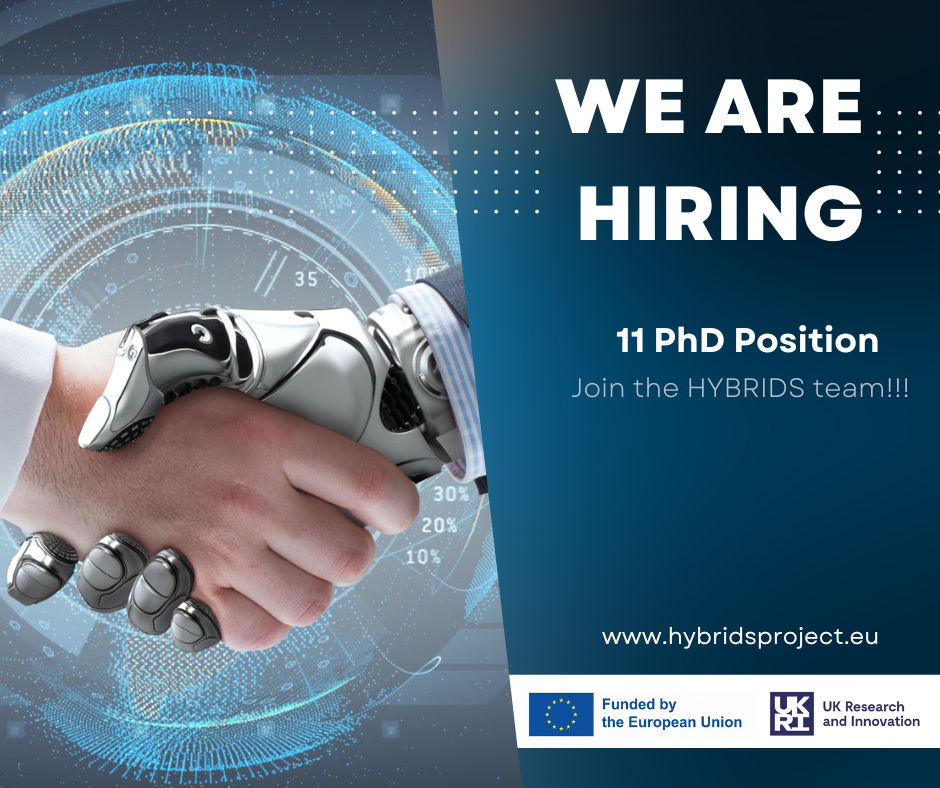A doctoral network that comprises 14 leading universities, research centers, non-profit organizations, and companies across Europe is seeking qualified applicants for 11 PhD positions to research on AI against disinformation and abusive language.
11 fully-funded PhD positions are now open for applications in the HYBRIDS Doctoral Network, supported by the Horizon Europe Marie Skłodowska-Curie Actions (HE MSCA) and co-funded by UK Research and Innovation (UKRI) HE funding guarantee. Applications are currently open and will close on April 26th, 2023.
The network aims to tackle the growing threat of disinformation in democracies through the development of hybrid intelligence systems that combine machine and human intelligence.
To overcome the shortcomings of existing artificial intelligence methods, HYBRIDS will integrate the structured knowledge provided by social and human sciences into natural language processing tools and deep learning algorithms, creating new hybrid intelligence systems.
Each of the 11 doctoral candidates will be hired by one of the partner institutions through which they will be enrolled in a doctoral programme. The HYBRIDS consortium, coordinated by the Universidade de Santiago de Compostela, involves partner universities, leading research centres, non-profit organisations, and innovation companies across Europe: Université de Caen (France), Universidade da Coruña (Spain), Universidade de Évora (Portugal), Radboud Universiteit (the Netherlands), Queen Mary University of London (UK), Consejo Superior de Investigaciones Cientificas (Spain), Fondazione Bruno Kessler (Italy), GESIS-Leibniz-Institut fur Sozialwissenschaften (Germany), Fondazione Openpolis ETS (Italy), Fundación Universidad Empresa Gallega (Spain), Factoria de software e multimedia S.L. (IMAXIN, Spain), Industrieanlagen Betriebsgesellschaft MBH (IABG, Germany), and Newtral (Spain).
The projects cover a range of topics related to disinformation, abusive language and public discourse, including automatic characterization of micro-level structures in social media discourse, measuring the impact of political discourse on public opinion, identifying the stance of argumentative opinions, analyzing political propagation campaigns on social media, detecting hate speech against immigrants, identifying toxic bots on Twitter, detecting hyperpartisan political news, generating hybrid data for online harassment detection, claim verification for fact-checking, detecting harassment on social media, and cross-lingual claim detection for fact-checking.
Candidates will participate in secondments with academic and non-academic partners and receive training from prominent European researchers.
We encourage outstanding and motivated candidates to visit the HYBRIDS website to check the specific calls for each available position, and to apply, with a special shout-out to the women. It’s important to note that each position may have additional specific requirements, so candidates should carefully review the details. Don’t miss out on this unique opportunity to receive international and inter-sectoral training from prominent European researchers in the field of disinformation, abusive language and democracy!

